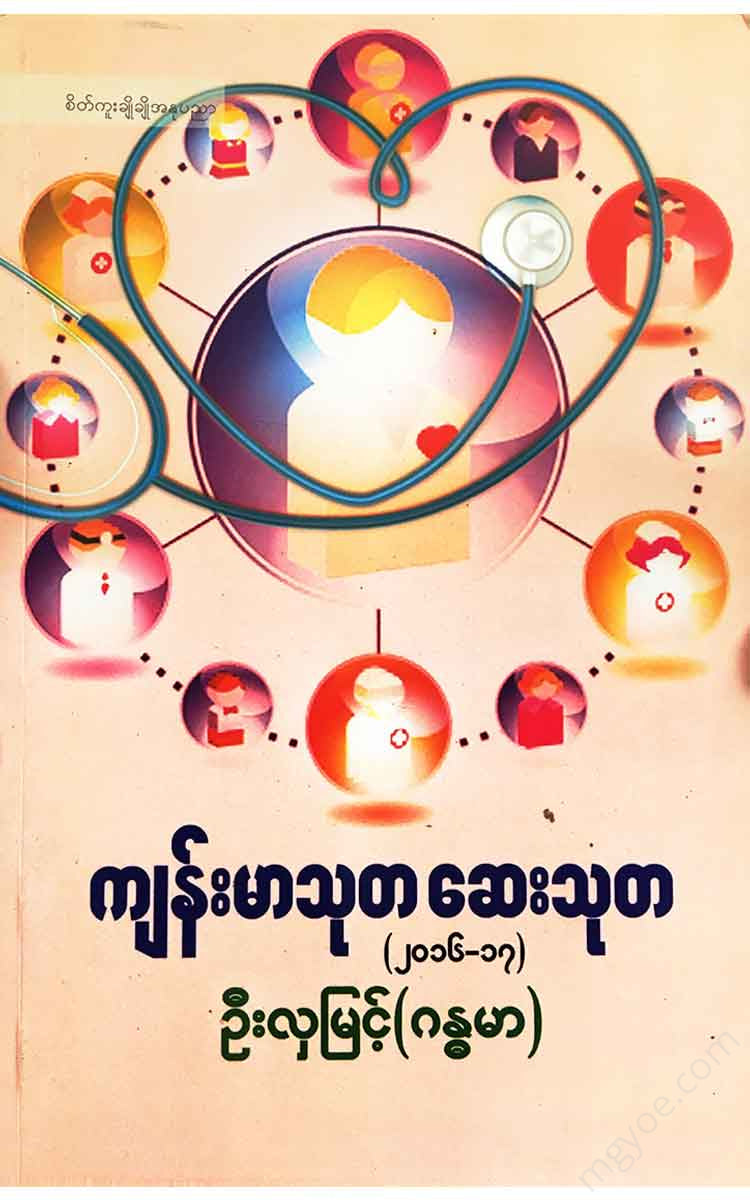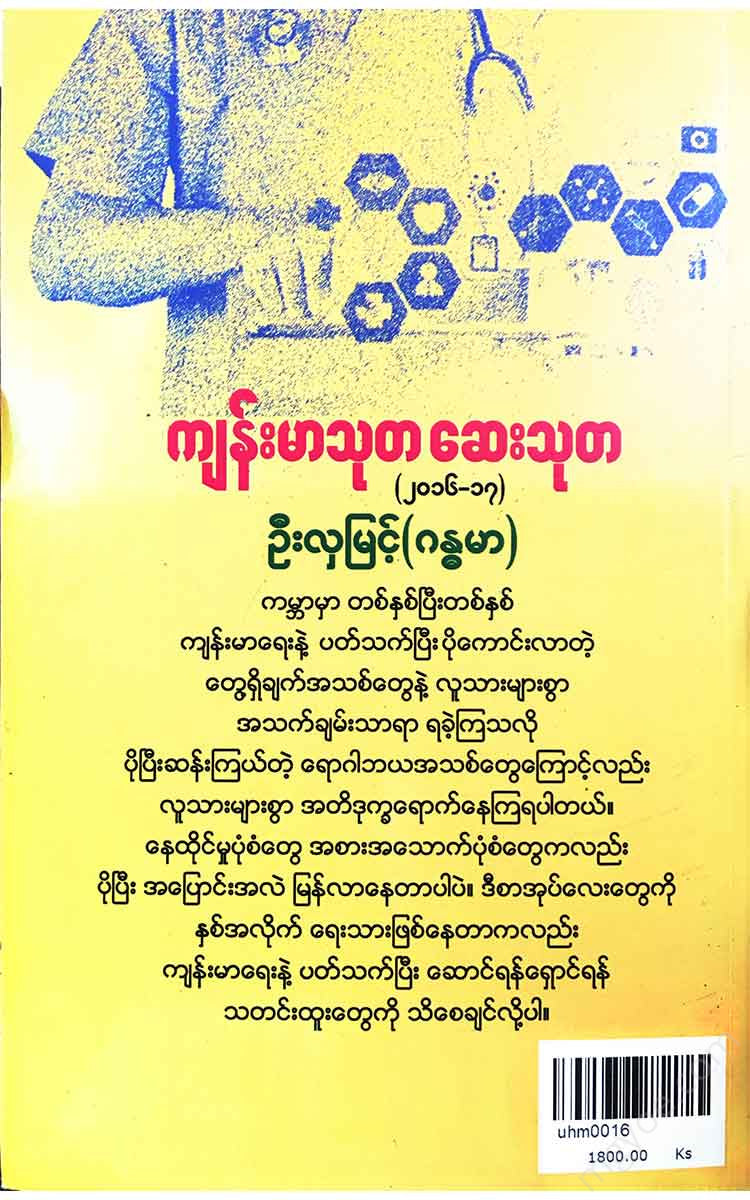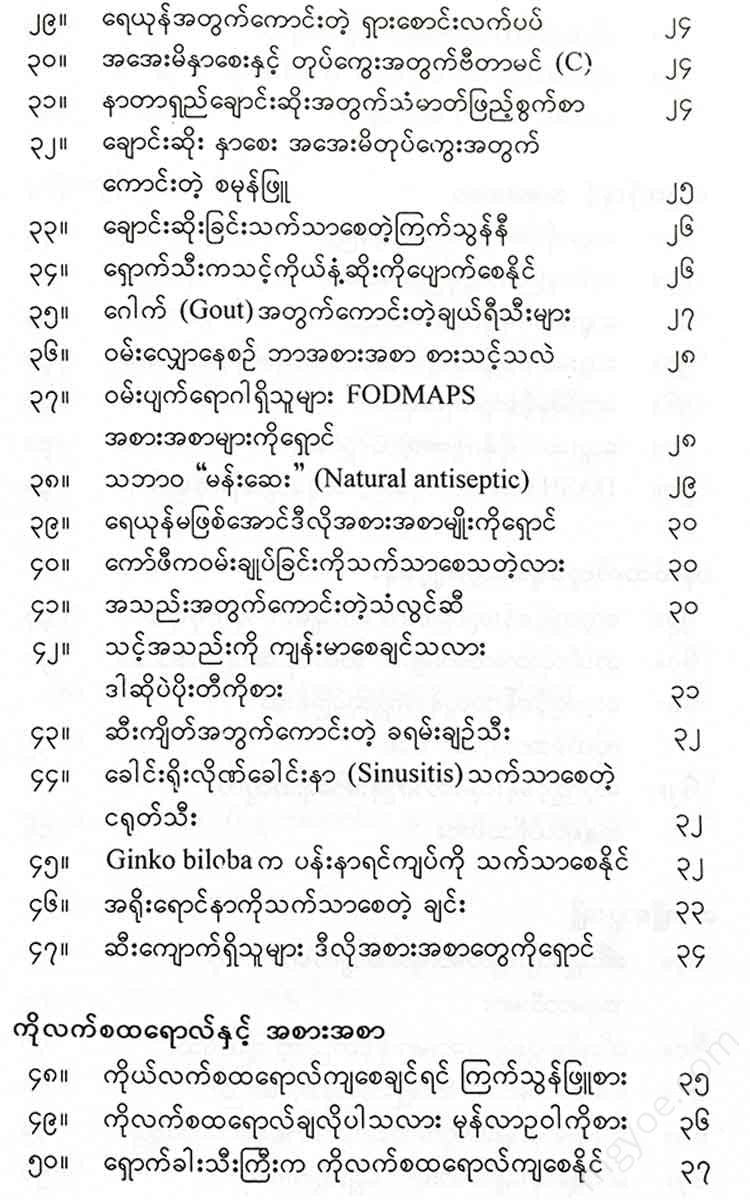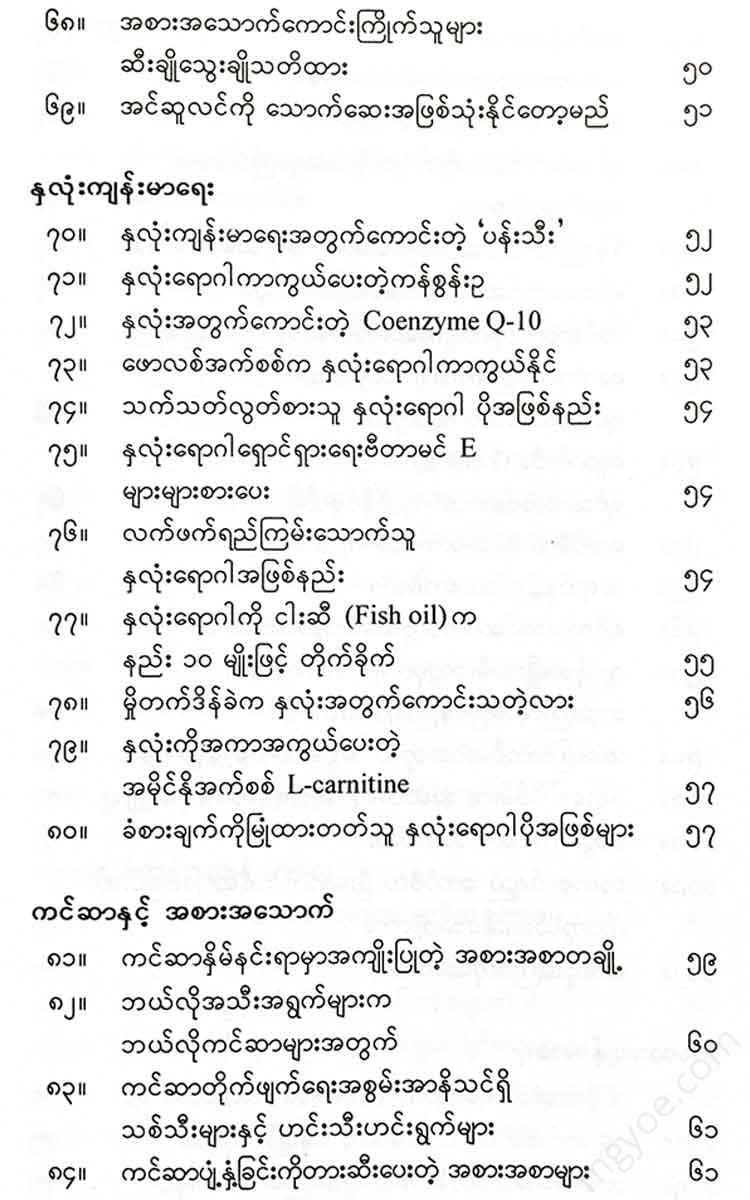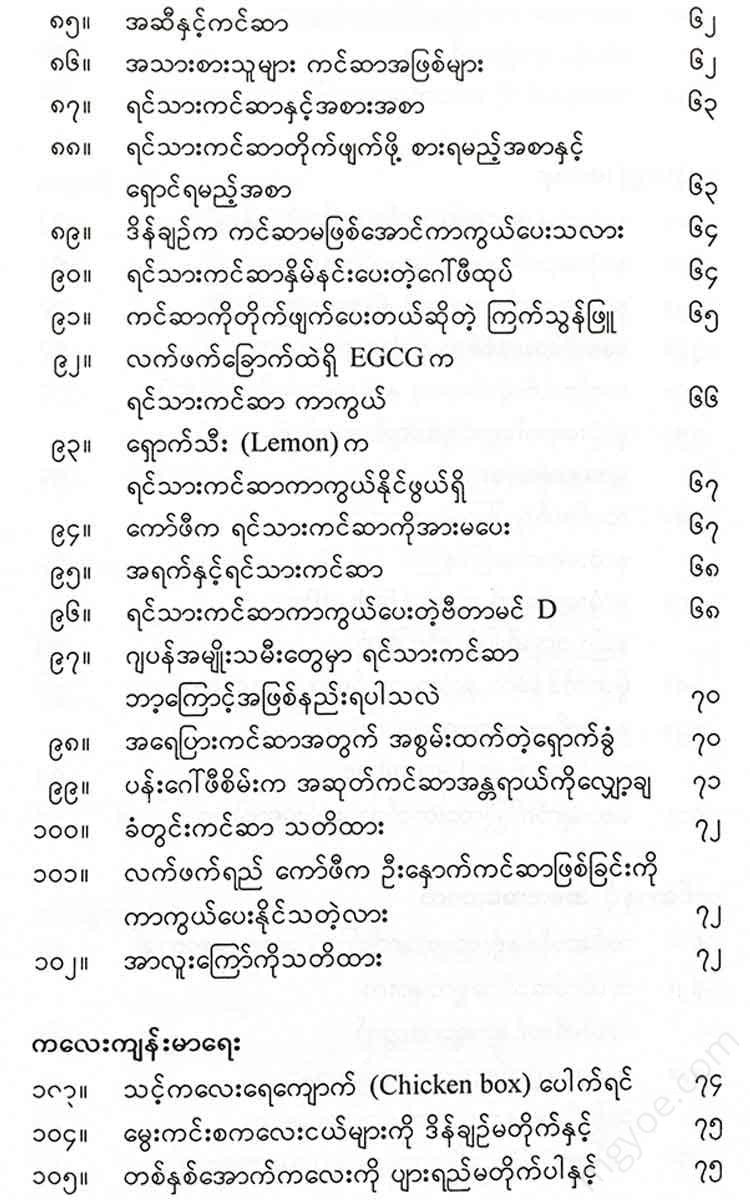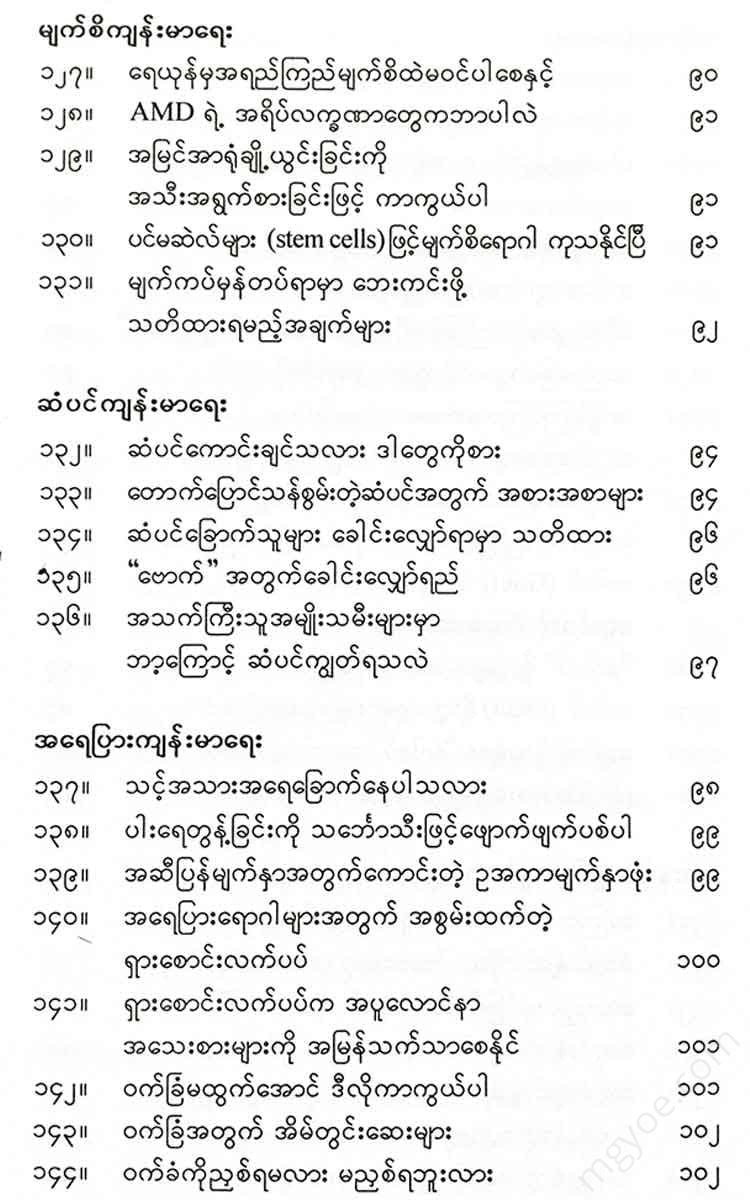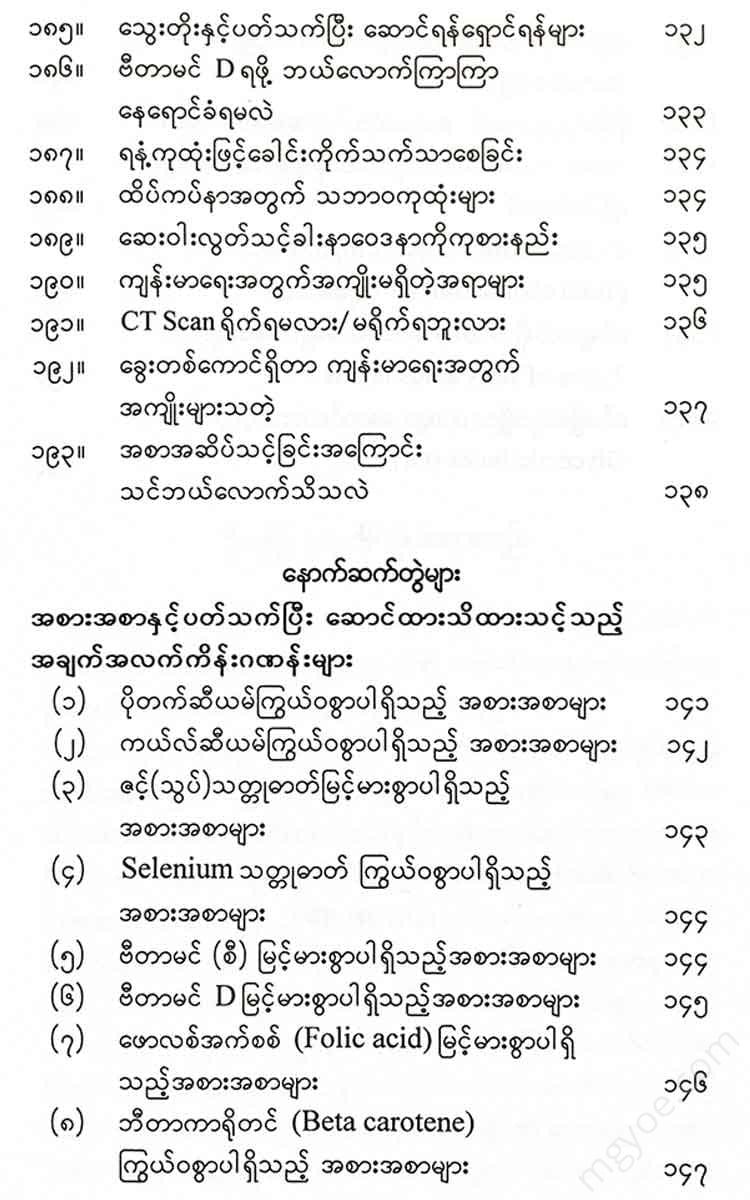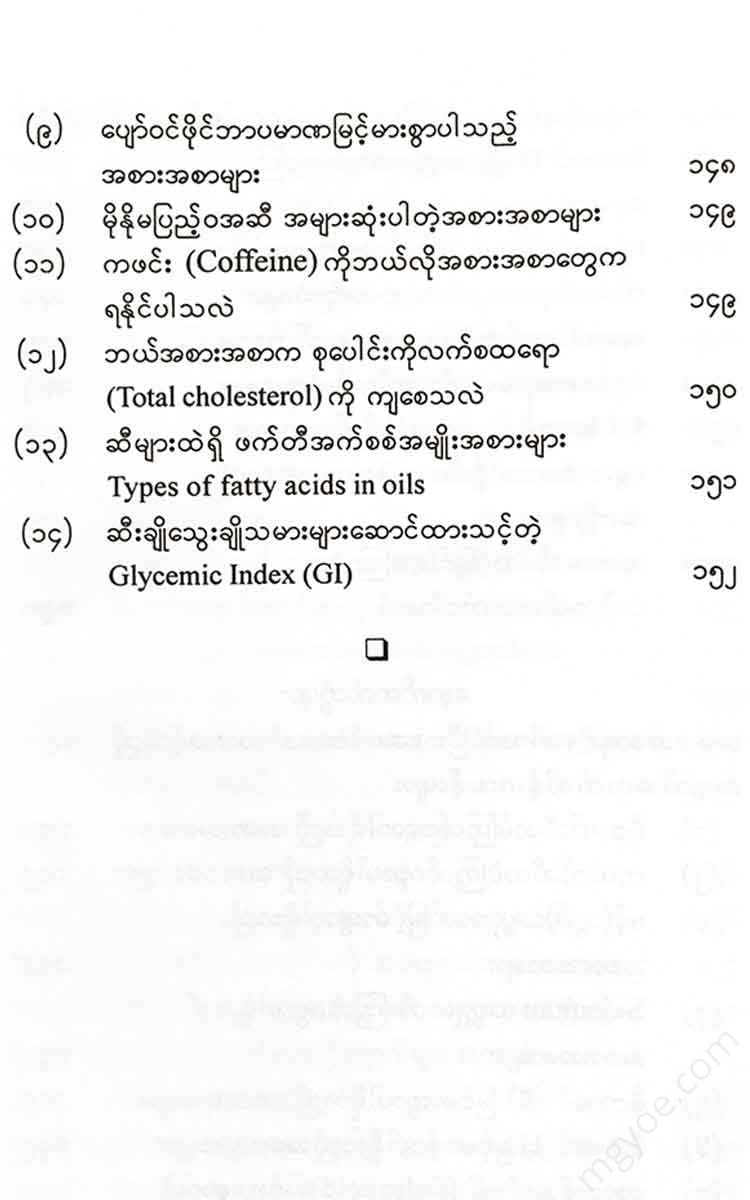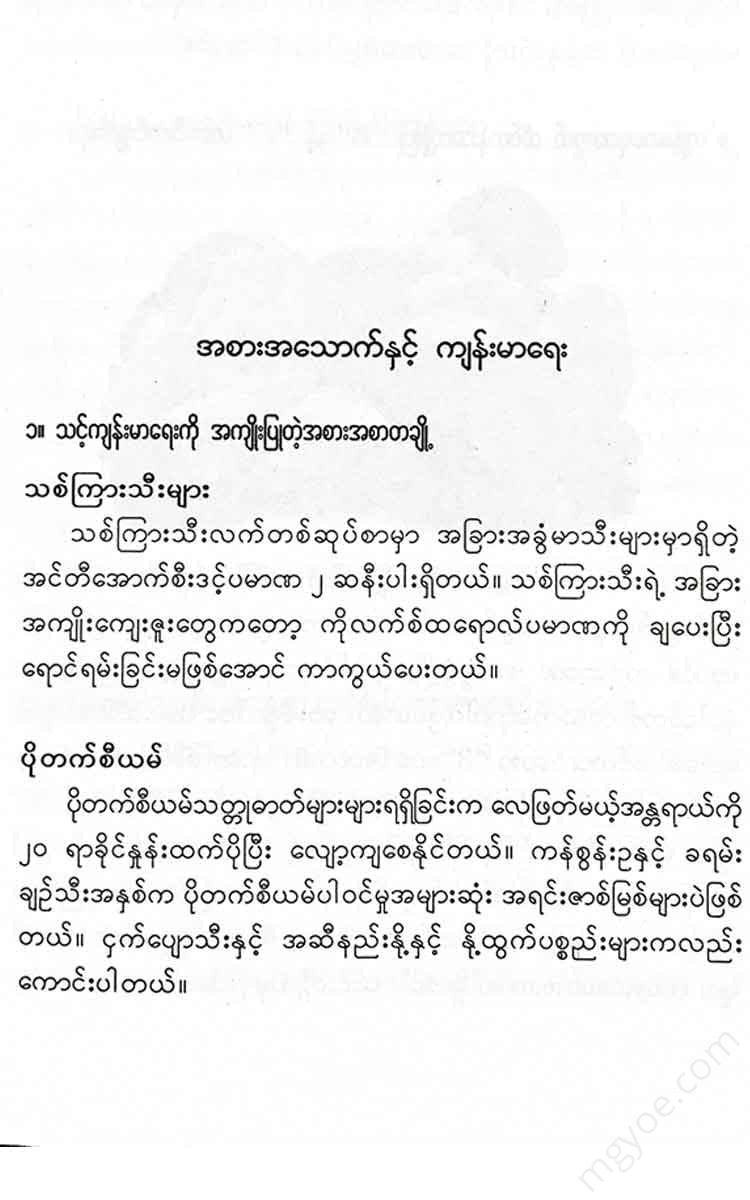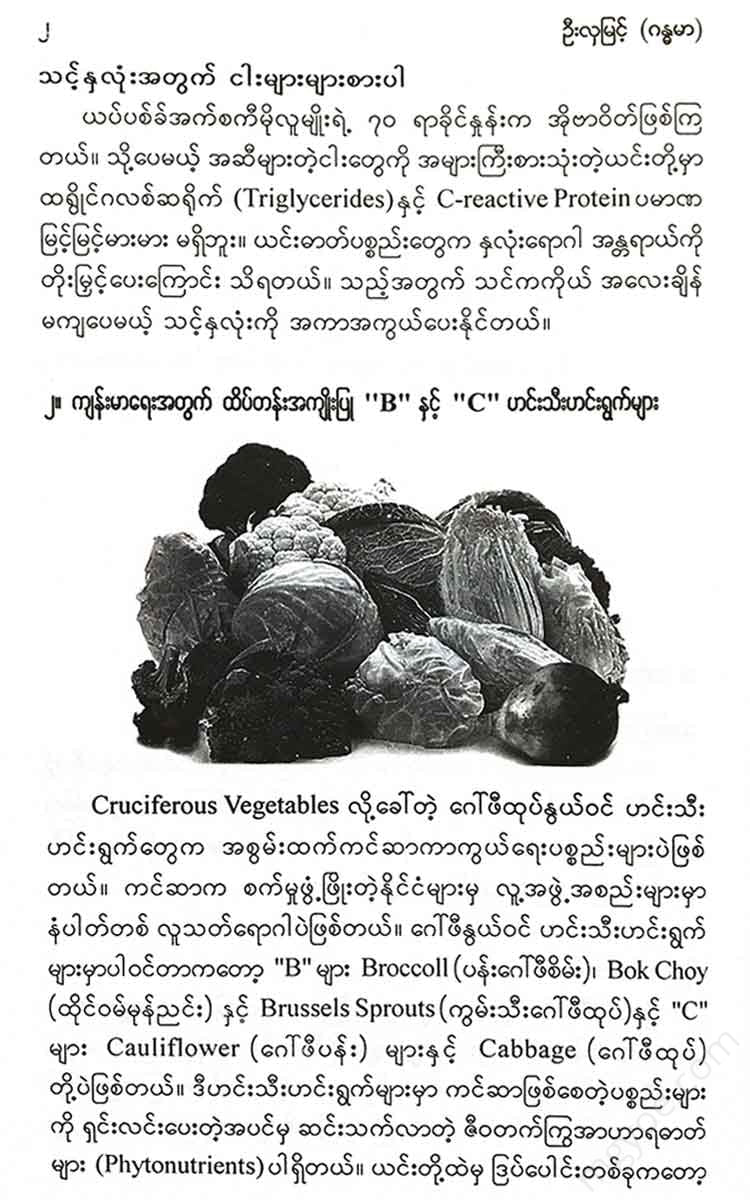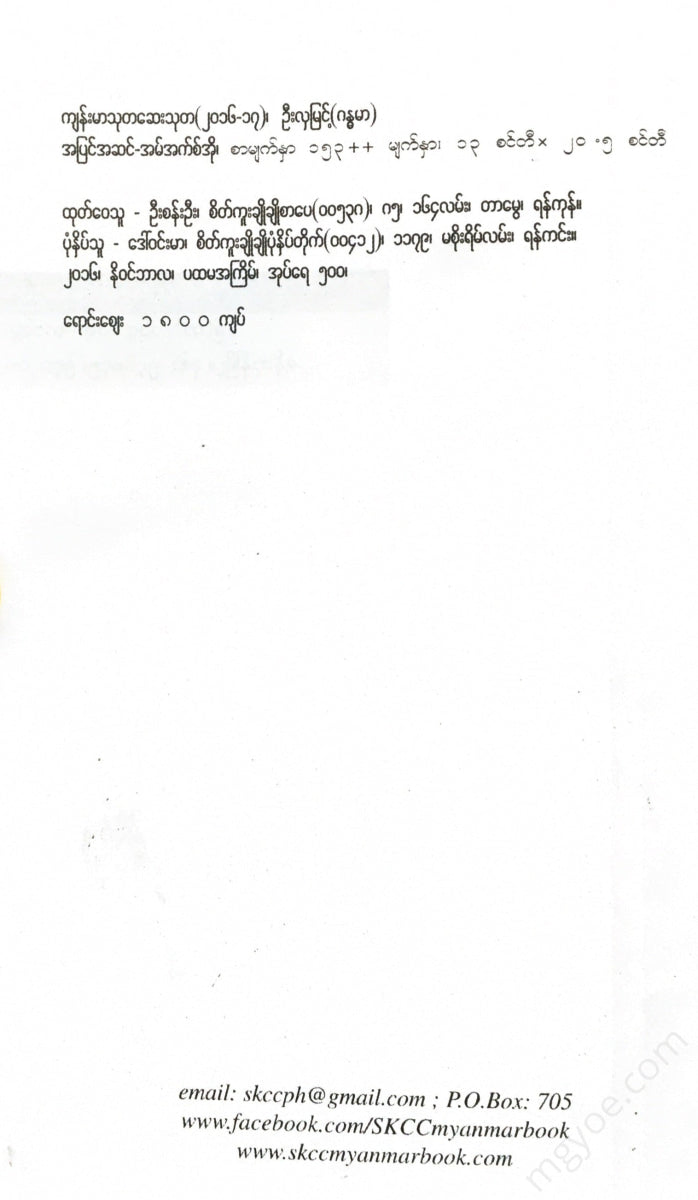စိတ်ကူးချိုချိုစာပေ
U Hla Myint (Gandhama) - Health Research and Medicine 2016-17
U Hla Myint (Gandhama) - Health Research and Medicine 2016-17
Couldn't load pickup availability
Health research, medical research
Indole -3 Carbinol. This compound is effective in killing estrogen-sensitive cancer cells in the breast, colon, and prostate gland. Cruciferous vegetables are also a good source of beta-carotene, vitamins C and E , folate, and calcium. Many of these are also antioxidants.
3. Eat a clove of garlic every day for your health.
Garlic contains a compound called allicin that can help prevent hardening of the arteries and blockage of the coronary arteries. It lowers blood cholesterol levels. It reduces blood clotting. It stimulates the production of triglycerides. It regulates blood sugar levels. It prevents cancer. These are just some of the studies that have shown that garlic is antibacterial, so it is often used to treat minor infections. If you don't like its strong smell, eat parsley to neutralize it .
4. Eat fresh, organic foods for good health.
There is nothing better for your health and well-being than fresh, unprocessed organic food. Fresh fruits and vegetables should be delivered to your table directly from the source. This way, there is less loss of nutrients in the process. The food in supermarkets has been picked (or killed) for weeks or months before it reaches the shelves. These foods are often preserved with nitrogen or other methods to make them look fresh. In addition, foods grown with pesticides and fertilizers have lower nutritional value than foods grown organically.
5. Be careful of these things when cooking your food.
To get the most out of your food, handle it gently. High temperatures can destroy important nutrients. For example, boiling vegetables can destroy up to half of the vitamins in them. Deep frying produces the worst kind of fat in fatty foods. These are trans fats, which clog arteries and increase the risk of cancer. Also, eating charred or blackened steaks or grilled meats can increase your risk of cancer. Don't ruin your food with high heat. Use lightly steaming , quickly stir-frying , or deep-frying to preserve the nutritional value of your food.
6. Eating less salt is definitely good for your health.
Whether or not limiting your salt intake can help control your blood pressure depends on your individual biological response. But even if you don't have high blood pressure, cutting back on salt can be beneficial. That's because the sodium in salt (sodium chloride) promotes damage to blood vessels and stroke in ways other than by raising blood pressure , says Dr. Louis Tobian, chief of the University of Minnesota's Center for Hypertension. If you have high blood pressure and have kidney or heart problems, you should definitely cut back on salt, Dr. Tobian warns.
7. Eat less salt and live longer.
Salt (table salt) is known to preserve food. However, it does not make us healthier or live longer. Recent studies have shown that increased salt intake is directly proportional to the increase in stomach, esophagus, and bladder cancers. In addition, sodium (the element in salt) has long been known to be associated with chronic diseases such as heart disease, high blood pressure, and osteoporosis. Use vinegar as a substitute for salt. Use garlic, herbs, and spices.
8. The dangers of eating red meat
Red meat is a staple in our diet. But the way we eat it is killing us. Harvard researchers followed the dietary choices of more than 121,000 people for 28 years and found that those who ate about 85 grams of red meat a day were more likely to develop heart disease or cancer than those who ate a vegetarian diet.
